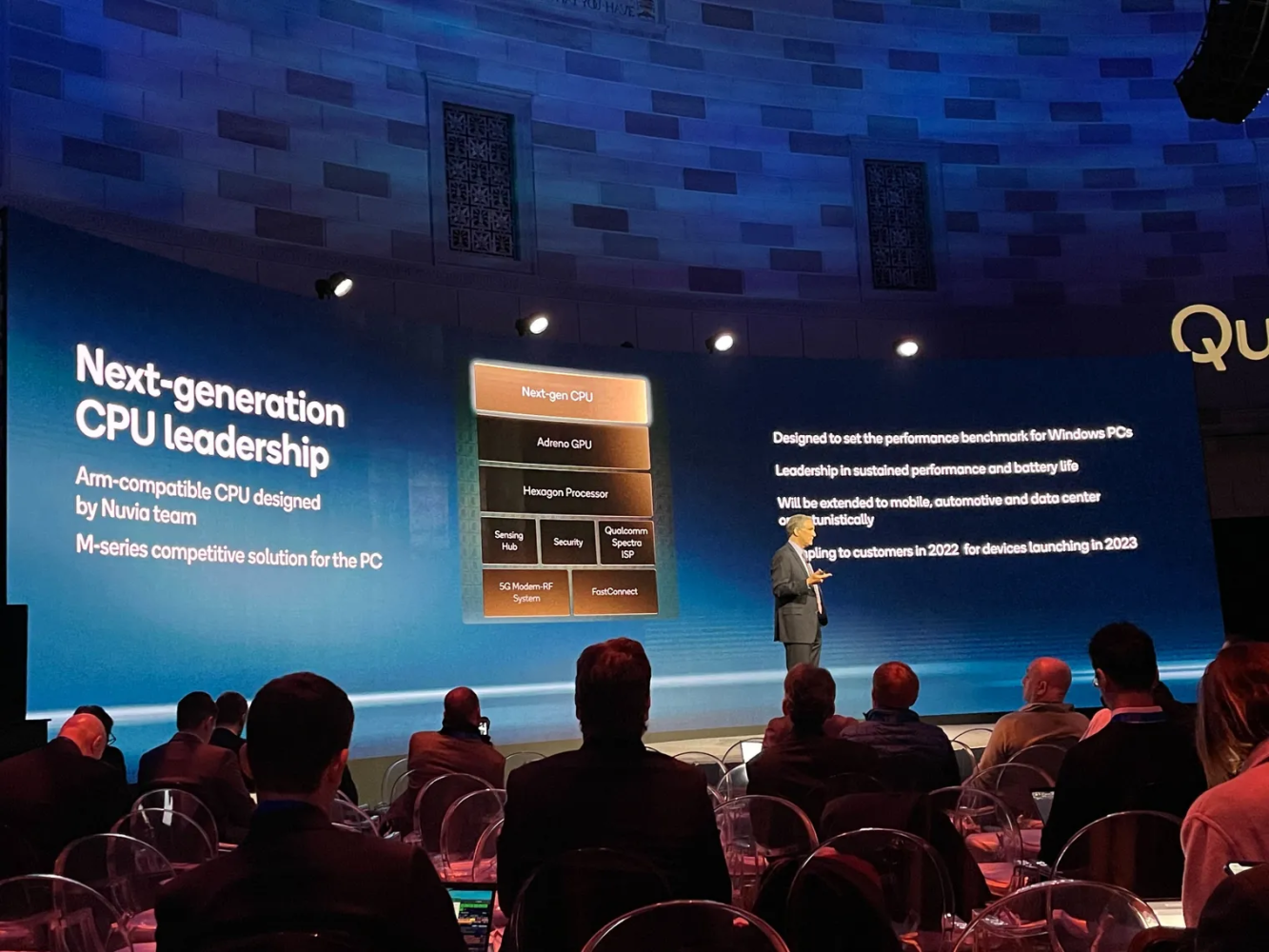The performance and power efficiency of Apple’s M1, M1 Pro and M1 Max chips have astounded us over the past year, and now chipmaker Qualcomm has announced plans to debut a rival chip in 2023 with the help of some former Apple employees.
This is a big deal, because, until recently, laptops packing SoCs (system-on-a-chip) with unified CPU/GPU architecture tended to deliver underwhelming performance. This is compared to the more traditional discrete CPU/GPU arrangements seen in most PCs. Apple’s bespoke M-series SoCs changed all that, delivering incredible leaps in power and efficiency in laptops like 2020’s MacBook Air M1 and the MacBook Pro 2021 with M1 Pro and M1 Max. If Qualcomm can deliver on its promise to debut SoCs that rival Apple’s M-series chips, we may see a new wave of Windows laptops in 2023 that are far more powerful and battery-efficient than what’s on the market today.

Of course, we’ll have to wait and see whether Qualcomm can deliver on that promise, which The Verge reports was made by Qualcomm CTO Dr. James Thompson during the company’s 2021 investor event. Specifically, Qualcomm plans to roll out a new ARM-based chip to hardware makers in 2022 that it claims will be competitive with Apple’s M-series chips and set a new standard for power and efficiency in Windows PCs. If that pans out, Qualcomm says we should see this new chip arrive in new laptops and other PCs in 2023. It also plans to adapt that chip for mobile devices, cars and data centers if it makes sense.
This new chip is being designed by the folks at Nuvia, a startup founded by three former Apple engineers with backgrounds in chip design. Qualcomm acquired Nuvia for approximately $1.4 billion earlier this year, and not long after Qualcomm CEO Cristiano Amon told Reuters that the company was planning to build an M1 chip killer with its newly-hired ex-Apple experts.
We know when it plans to launch that chip, though we’ll have to wait and see how well it stacks up against the latest Apple silicon. By 2023 we expect that the long-rumored Apple M2 chip (which we expect to see debut in 2022 inside a new MacBook Air) will be old news, and Apple may have something even better on the market.
Qualcomm has also promised to improve the performance of its Adreno GPUs, which provide the graphical muscle for its Snapdragon mobile chipsets. Snapdragon-powered Windows laptops have generally proven to be long-lasting but underpowered compared to notebooks with discrete Intel/AMD CPUs. But that could all change if Qualcomm’s plans to debut an Apple M-series chip-killer in 2023.









